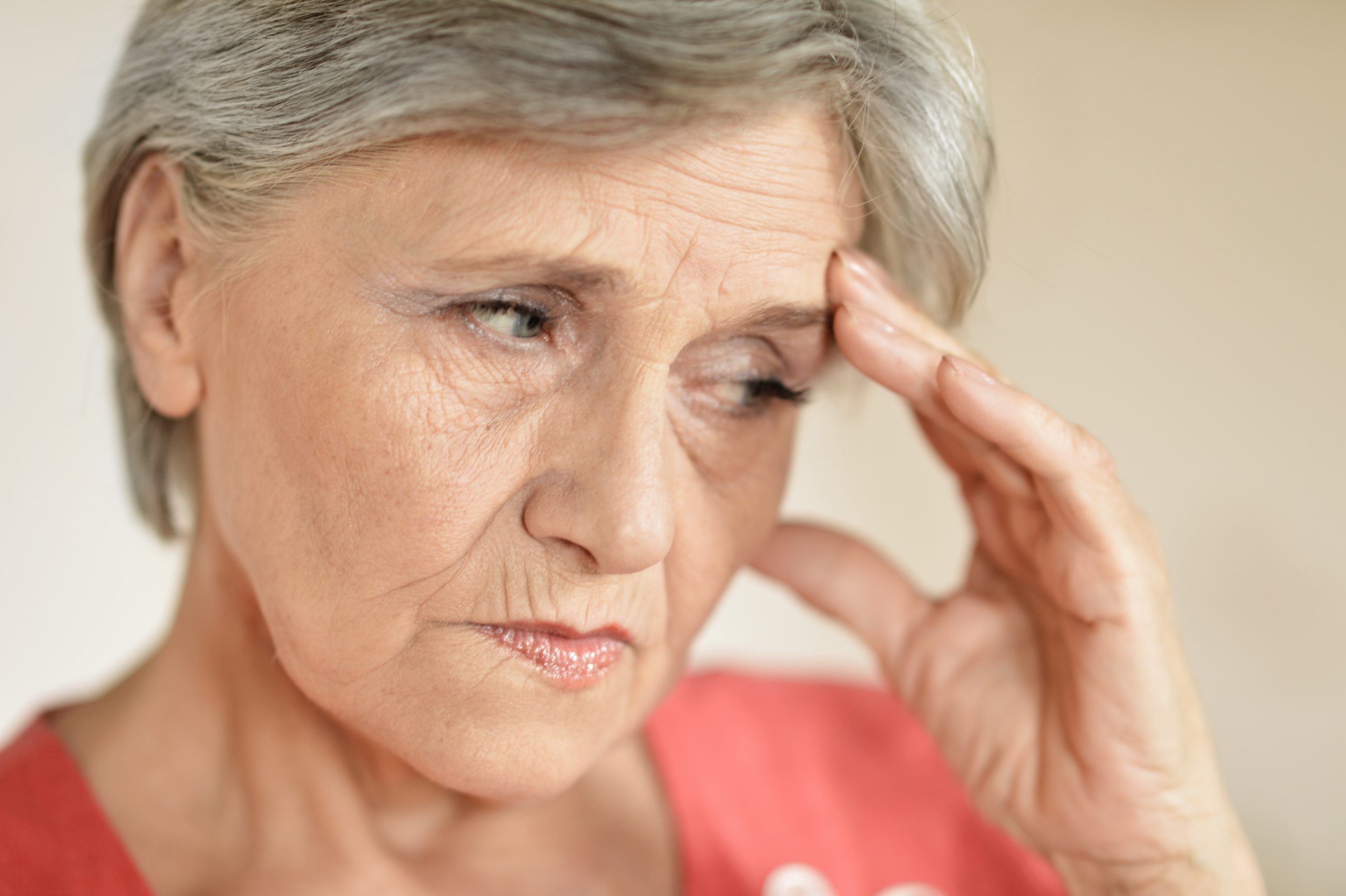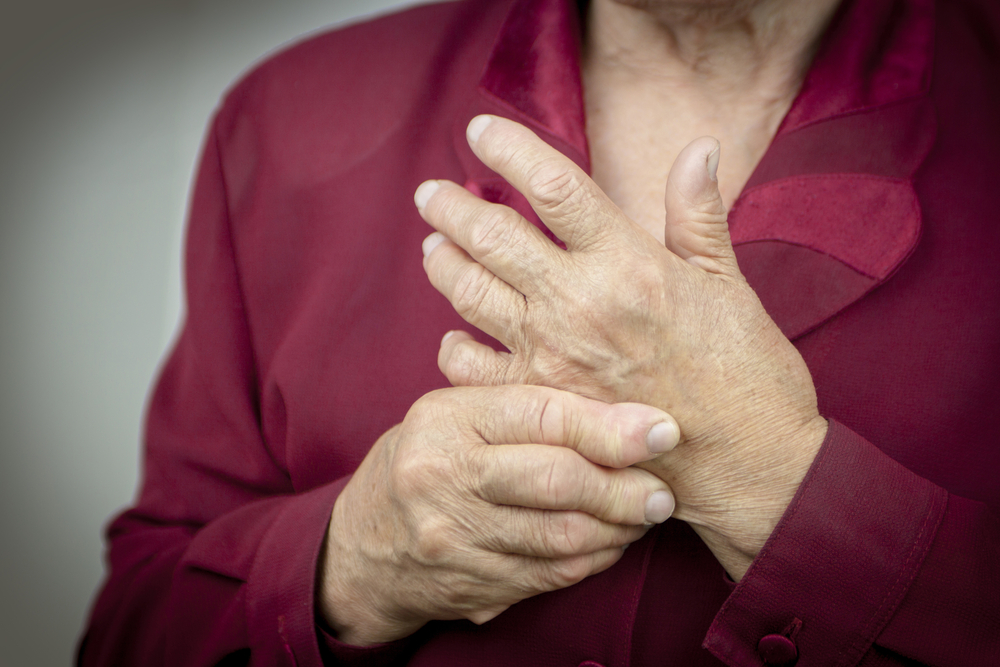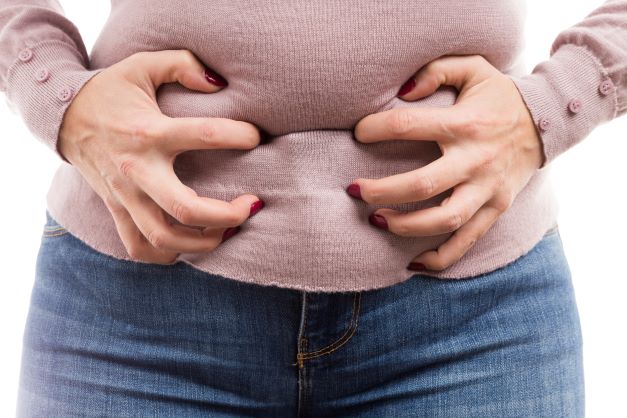Are you feeling like your body is out of balance since you started to see signs of menopause? Don’t worry – you don’t have to rely on prescription drugs to handle your menopause symptoms.
With a few lifestyle changes and natural remedies, you can take control of your menopause symptoms and feel better!
We will guide you in managing menopause symptoms without medication. Sometimes, the simplest and most natural methods may also be the best solution.
Let’s learn how to manage your menopause symptoms without medication!
Dr. Gala’s Quick Take
A woman’s body going through hormonal changes during enopause makes less estrogen and progesterone. This drop in hormones can cause symptoms like hot flashes, mood swings, and night sweats. Manage these symptoms without medication through simple lifestyle changes such as doing exercises, having a healthy diet, and doing relaxation techniques like meditation.
Common Menopause Symptoms
You may be experiencing common menopause symptoms such as hot flashes, irritability, mood swings, weight gain, and fatigue.
These can be unpleasant and disruptive, so it’s important to learn how to manage them … naturally.
Let’s explore some natural remedies and lifestyle changes that can help in managing menopause symptoms without medication.

Hot Flashes
Although hot flashes are a common symptom of menopause, they can be managed without medication.
Diet and lifestyle changes can help ease symptoms and reduce hot flashes. Regular exercise such as walking or yoga can improve overall well-being and help reduce hot flashes.
Eating a healthy diet rich in fruits, vegetables, and whole grains can also help manage menopausal symptoms. Additionally, managing stress through relaxation techniques such as deep breathing or meditation can be beneficial.
Phytoestrogens found in foods like barley, sesame, lentils, flaxseed, soybeans, and tofu can balance estrogen levels and help reduce hot flashes.
Dressing in layers, using a fan or cool compresses, and avoiding triggers like caffeine, alcohol, and spicy food can also help reduce hot flashes.
Irritability
Managing irritability during menopause can be achieved through lifestyle changes and natural remedies. Gentle exercise, like walking or yoga, along with deep breathing, can help reduce irritability and improve overall well-being.
Relaxation techniques, like meditation, can help to manage stress. Additionally, maintaining a healthy weight and proactively avoiding weight gain, can also relieve irritability. These strategies can help to alleviate many menopausal symptoms and promote overall well-being.
With these techniques, mood swings can also be managed, paving the way to improved quality of life.
Mood Swings

Mood swings, a common symptom of menopause, can be managed without medication through lifestyle changes and natural remedies.
Eating a nutrient-rich diet can help alleviate symptoms, as certain vitamins and minerals, such as magnesium, vitamin B, and essential fatty acids, can aid in hormonal balance.
As I mentioned above, regular exercise, like yoga and aerobic activities, can also help reduce irritability and improve moods.
Prioritizing self-care practices and seeking support from trusted individuals can help manage the stress and anxiety associated with menopause.
Finally, avoiding certain triggers, such as caffeine, alcohol, and other stimulants, can help with mood swings.
All in all, menopause doesn’t need to be a burden and can be managed with these simple strategies.
Weight Gain
Gaining weight is a common symptom of menopause, linked to a decrease in estrogen which can cause body fat to redistribute. Regular exercise can help to keep weight gain in check and improve overall well-being.
It’s important to be mindful of the adrenaline produced by exercise. If cortisol levels spike, it can backfire on women who are already struggling with menopause symptoms including fatigue. Gentle exercise is best.

Supplements such as magnesium, calcium, and essential fatty acids can help regulate hormones, while phytoestrogens from soybeans and flaxseed can aid in balancing estrogen levels.
Incorporating yoga or other relaxation techniques into your daily routine can also help with stress. And, less stress will make you feel better making a huge difference to your mood and energy levels.
Transitioning to a healthier lifestyle can help make menopause more manageable, allowing you to feel empowered and energized.
Fatigue
Aside from weight gain, fatigue is another common symptom of menopause that can be managed without medication. To combat fatigue, it’s important to ensure you’re receiving adequate amounts of key nutrients like magnesium, iron, and vitamins D and B. Regular gentle exercises, such as short daily walks or yoga stretches, can also help manage fatigue.
As I mentioned above, stress and anxiety can be managed through support from trusted individuals and relaxation techniques like deep breathing or meditation. Natural remedies have been found to help with fatigue-related menopause symptoms.
Insomnia
Insomnia is another common menopause symptom that can be managed without medication. Relaxation techniques such as meditation and deep breathing will help to relieve insomnia as well. Regular exercise, such as yoga, can also improve sleep quality. Eating a diet rich in plant estrogens also provides missing hormones during menopause.

Taking steps like these can be beneficial in managing insomnia during menopause without the need for medication.
To further improve symptoms of menopause, consider addressing vaginal dryness.
Low Libido and Vaginal Dryness
Women often report low libido as a symptom of menopause. In part, it’s the result of vaginal dryness. To manage this uncomfortable symptom without medication, you can explore various lifestyle changes and natural remedies.
Vitamin E, flaxseed, water-soluble “all-natural” lubricants, and other vaginal moisturizers can provide relief as your body works through the transition.
With a comprehensive approach, managing symptoms of menopause, even those of moderate to severe degree issues related to sexuality, can be handled without medication.
Brain Fog
Brain fog during menopause is a common experience among midlife women, characterized by changes in cognitive function. This phenomenon is not just about age-related cognitive decline; it’s more specifically associated with the menopausal transition. Women often express concerns about these cognitive changes, wondering if they might be the initial stages of a more serious cognitive disorder.
During menopause, specific cognitive changes occur. These include alterations in memory, difficulty with word retrieval, and general mental fatigue. The severity and duration of these changes can vary among individuals. An important aspect to understand is the role of estrogen and menopausal symptoms in these cognitive changes. Estrogen has been shown to have a significant impact on cognitive function, and its decline during menopause can contribute to the symptoms of brain fog.
Additionally, there are modifiable risk factors for age-related cognitive decline and dementia that should be considered. Your doctor can offer advice on optimizing brain health at midlife and beyond, focusing on lifestyle changes that can mitigate cognitive challenges.
Brain fog during menopause is a real and significant concern. Understanding these changes, their impact and ways to manage them is crucial for women going through menopause.
It bears repeating … eating a balanced diet rich in fruits, vegetables, and whole grains can help with many symptoms of menopause including brain fog … improving cognitive function, according to the American Academy of Family Physicians Practice Bulletin on care of the mature.
Joint Pain

Moreover, joint pain is another common symptom of menopause that can be managed without medication. According to the North American Menopause Society, making lifestyle changes and utilizing natural remedies can help make your symptoms more manageable.
- Make a list of medical conditions that may be causing joint pain, and look for ways to reduce stress and balance hormones.
- Reduce inflammatory foods that cause internal stress … that may escalate to toxic stress.
- Regular exercise, especially low-impact activities like yoga, can help reduce joint pain.
- Lastly, incorporating phytoestrogen-rich foods like soybeans and tofu into the diet can help balance estrogen levels and reduce joint pain.
With these strategies in place, you can make your symptoms more manageable so that you can maintain your healthy and active life.
Now, let’s discuss how hormonal changes lead to symptoms.
How Hormonal Changes Lead to Symptoms
At menopause, your body’s hormones—estrogen and progesterone—begin to decrease, resulting in a variety of symptoms. Hot flashes and night sweats are common, as well as mood swings. Studies indicate mixed results when it comes to the effects of hormone replacement therapy (HRT) on menopause symptoms.
Estrogen and progesterone, typically known for their roles in the female reproductive system, also have significant impacts on various other aspects of health and bodily functions beyond reproduction. Here’s an overview of their roles:
Estrogen’s Impact Beyond Reproduction:
- Bone Health: Estrogen is crucial for the maintenance of bone density. It stimulates the activity of osteoblasts (cells responsible for bone formation) and inhibits osteoclasts (cells that break down bone). This hormonal balance is essential for preventing osteoporosis, particularly after menopause when estrogen levels drop significantly.
- Cardiovascular Health: Estrogen has a protective effect on heart health. It helps maintain the flexibility of arteries, reducing the risk of atherosclerosis (hardening of the arteries). It also influences cholesterol levels by increasing high-density lipoprotein (HDL) and decreasing low-density lipoprotein (LDL).
- Brain Function and Mental Health: Estrogen is believed to have a neuroprotective effect. It may enhance brain function and is thought to be linked with mood regulation. Lower estrogen levels during menopause are often associated with increased risks of depression and mood swings.
- Skin Health: It aids in maintaining the thickness and moisture of the skin. Estrogen promotes collagen production, which is vital for skin elasticity and strength.
Progesterone’s Impact Beyond Reproduction:
- Nervous System Function: Progesterone has calming effects on the brain. It is a natural sedative and can improve sleep quality. It also plays a role in the myelination of nerves, which is essential for the proper functioning of the nervous system.
- Immune System Modulation: Progesterone has anti-inflammatory properties and can modulate immune response. This is crucial in preventing overactive immune responses and autoimmune conditions.
- Mood and Emotional Health: Similar to estrogen, progesterone plays a role in brain function and mood regulation. It can have mood-stabilizing effects and is often associated with reducing anxiety and enhancing overall mood.
- Bone Health: Progesterone, like estrogen, contributes to bone health. It supports the development and maintenance of bone tissue, offering a protective effect against bone density loss.
Both hormones play critical roles in overall health and well-being, extending far beyond their reproductive functions. They are integral to various physiological processes and have protective roles in several systems within the body. The decline of these hormones during menopause can lead to various health issues, which is why hormone replacement therapy is sometimes considered for managing menopausal symptoms and preventing long-term health problems like osteoporosis and cardiovascular diseases.
Due to the risks associated with HRT, natural remedies are a better option that can help you feel better … regardless of the phase of life you’re in.
Nutrient deficiencies during menopause can impact hormonal balance and contribute to symptoms, so eating a healthy diet rich in fruits, vegetables, and whole grains can be beneficial. Additionally, phytoestrogens found in certain foods can help balance estrogen levels and alleviate menopause symptoms.
The next section of the article will discuss how stress can have an effect on menopause symptoms.
Effects of Stress on Menopause Symptoms

Although menopause can bring hormonal changes that cause physical and emotional symptoms, stress can also exacerbate these issues. In particular, it can result in more frequent and intense hot flashes and night sweats, as well as an increase in other side effects such as irritability, anxiety, and sleep disruption.
To manage these issues, I recommend stress management techniques such as yoga, meditation, and deep breathing exercises. These can help relieve the symptoms of menopause and provide a sense of control and support.
Additionally, seeking support from trusted individuals and engaging in regular exercise can help alleviate anxiety and stress associated with menopause. By taking charge of your menopause care, you can better manage the effects of stress and feel more in control of your life.
With these strategies in place, you can move confidently into the next section about ‘workplace challenges during menopause’.
Workplace Challenges During Menopause
Managing workplace challenges during menopause can be difficult, but with the right strategies in place, you can remain productive and in control.
Stress can exacerbate menopausal symptoms. So, it’s important to find healthy ways to manage stress.
It is generally understood in the medical community that stress can exacerbate menopause symptoms. Stress can impact hormone levels and body systems that intensify symptoms like …
- Hot flashes
- Mood swings
- Sleep disturbance
… and the list goes on.
In fact, the Health and Employment After Fifty group found that around one-third of women reported moderate to severe difficulties coping at work due to menopause symptoms.
Regularly assessing your needs and implementing lifestyle modifications is also important. Open communication with employers and colleagues is key to gaining support in the workplace.
Tips for Relieving Menopause Symptoms Naturally

Managing menopause symptoms naturally is achievable through lifestyle changes and natural remedies.
Stress management, exercise, a healthy diet, temperature regulation, and sleep hygiene are all important factors that can help relieve symptoms.
By now, you can see that there is a lot of overlap. Many natural remedies will help you manage all of your menopause symptoms without medication. Let’s review.
Stress Management
To help relieve menopause symptoms without medication, focus on managing your stress levels.
Dealing with stress provides the antidote for menopause symptoms.
The results of another study suggest that reduced stress can potentially alleviate the frequency and severity of symptoms commonly experienced during menopause.
Regular exercise, such as walking or yoga, can be effective in reducing symptoms of menopause and improving your overall well-being. These stress management techniques help to reduce irritability.
Get enough calcium in your diet as well. A study from Penn State University found that calcium supplementation can reduce hot flashes in postmenopausal women.
Additionally, look for support from trusted individuals, and find joy in activities to manage emotional and psychological challenges. Avoid stimulants like caffeine, alcohol, and nicotine to help manage stress and improve menopause symptoms.
Lastly, include phytoestrogen-rich foods like soybeans, flaxseed, and tofu in your diet to balance estrogen levels.
Exercise Benefits
Regular exercise … 30 minutes most days … can also help relieve menopause symptoms naturally. Endorphins released during exercise can boost your mood. Walking or yoga stretches should be done daily for maximum benefit.
Exercise boosts metabolism, prevents weight gain, and promotes overall health. It also keeps bones strong during menopause.
Healthy Diet
Eating a healthy diet can be a great way to naturally manage menopause symptoms. Nutrients like magnesium, calcium, iron, zinc, essential fatty acids, and vitamins D and B can help relieve symptoms. Incorporate fresh fruits and vegetables, leafy greens, healthy fats, oily fish, soybeans, flaxseed, and red clover supplements into your diet.

Phytoestrogens found in foods such as barley, sesame, lentils, flaxseed, soybeans, and tofu can help balance estrogen levels and reduce hot flashes and night sweats. Ground or oil from flaxseed, which contains omega-3 fatty acids and lignans, also acts as a phytoestrogen and may provide relief from symptoms. Make sure to consume soy in food form, such as tofu and soy milk, for best results.
A well-balanced, nutritious diet is a great way to combat the discomfort of menopause symptoms.
Sleep Hygiene
Good sleep hygiene is another important factor for managing menopause symptoms naturally.
- Establish a regular sleep schedule to ensure a better quality of rest.
- Create a comfortable sleeping environment by adjusting the temperature and using breathable bedding.
- Avoid caffeine, alcohol, and nicotine close to bedtime to minimize disruptions.
- Relaxation techniques like deep breathing or meditation can also promote sound sleep and reduce sleep disruption during the night.
- Incorporate light physical activity, such as yoga, into your daily routine for even better results.
Temperature Regulation
Building on the importance of good sleep hygiene, another way to manage menopause symptoms naturally is by regulating your temperature. Dressing in layers can help manage hot flashes.
During hot flashes, slow, deep breathing can help reduce symptoms. Additionally, regular yoga or meditation practice can reduce the frequency and intensity of hot flashes.
Lastly, avoid stimulant triggers like caffeine, alcohol, and spicy foods that can trigger a hot flash even if you’re not menopausal. Maintaining a healthy diet and following a regular eating schedule will result in a reduction of menopause symptoms.
With these simple, natural strategies, you can take control of your health and manage your menopause symptoms without medication.
Avoid Triggers
Avoiding triggers, in addition to the stimulants previously discussed, can help to naturally reduce menopause symptoms. Stimulants are known to exacerbate symptoms by increasing internal stress. So it’s important to limit or eliminate them from your lifestyle and habits.
It’s important to find ways to manage stress. Taking the time to focus on yourself and take care of your mental and physical health can have a positive effect on your overall well-being.
Happy Brain Chemicals

Boost your happy brain chemicals to naturally help manage menopause symptoms. The “happy brain chemicals” – dopamine, serotonin, oxytocin, and endorphins – play crucial roles in regulating mood, emotions, and overall well-being. Here’s an overview of their functions:
Dopamine:
- Known as the “feel-good” neurotransmitter, dopamine is associated with pleasure and reward. It’s crucial in motivation, reward-seeking behavior, and the control of movement.
- Dopamine pathways in the brain influence various functions, from learning to attention and mood.
- Low levels of dopamine are linked with reduced motivation and pleasure, often observed in depression. Conversely, high levels can be associated with feelings of euphoria.
Serotonin:
- Serotonin is a key hormone that stabilizes mood, feelings of well-being, and happiness. It impacts the entire body, helping with sleeping, eating, and digesting.
- It helps regulate mood and social behavior, appetite and digestion, sleep, memory, and sexual desire and function.
- Imbalances in serotonin levels can affect mood and lead to depression. Antidepressants like SSRIs (selective serotonin reuptake inhibitors) are often used to increase serotonin levels in the brain but they have serious unwanted side effects.
Oxytocin:
- Often dubbed the “love hormone,” oxytocin is essential in social bonding, sexual reproduction, childbirth, and the period after childbirth.
- Oxytocin is released in large amounts during labor, facilitating childbirth and maternal bonding.
- It plays a role in behaviors like trust, empathy, and relationship-building. It’s also thought to have a calming effect that counters stress.
Endorphins:
- Endorphins are natural painkillers produced by the brain. They help alleviate pain and stress.
- They are often associated with “runner’s high” – the euphoric feeling following intense exercise. However, they are released in response to other activities too, like eating, exercise, or sex.
- Endorphins help to boost pleasure and relieve pain, promoting a sense of well-being.
These neurotransmitters and hormones are interconnected in their roles and often work together to regulate mood, emotional responses, and other physiological processes. For instance, exercise is a powerful trigger for the release of endorphins, dopamine, and serotonin, contributing to improved mood and reduced anxiety and depression symptoms.
Maintaining a balance of these chemicals is crucial for mental health and well-being. Lifestyle factors such as diet, exercise, sleep, and stress management can significantly influence their levels in the body.
Exercise, such as walking or yoga, releases endorphins that can counteract symptoms of menopause. Doing regular, short activities like breathing exercises and meditation can provide quick relief when symptoms escalate.
Herbal Remedies
If you’re looking for further relief from menopause symptoms, herbs can be explored as a natural remedy.
Black cohosh, derived from a species of buttercup, may help with mild hot flashes and night sweats. It’s important to use high-quality and professionally sourced herbs and supplements. For example, there have been rare cases of hepatitis reported … thought to be caused by low-quality herbs.
Soy, found in food forms like tofu and soy milk, can help reduce menopausal symptoms, while soy in tablet or powder form is less effective.
Flaxseed, either ground or in oil form, shows mixed results for relief of menopause symptoms but it’s recommended for its potential to lower cholesterol.
Lastly, vitamin E can improve vaginal lubrication and reduce hot flashes when applied topically, but there’s no consistent evidence that it relieves other symptoms.
Be sure to consult with a professional before trying any of these herbal remedies.
Yoga Therapy
Yoga combines exercise and meditation, It’s a powerful combination of exercise and stress management that can be beneficial for easing menopausal symptoms. By engaging in regular yoga practice, hot flashes, irritability, and mood swings can be reduced.

With the combination of exercise, meditation, and mindful breathing, you can successfully manage your menopause symptoms without medication. Mindfulness practice can further help you manage stress and promote overall well-being.
Mindfulness Practice
By practicing mindfulness, you can naturally relieve menopause symptoms. Mindfulness-based stress reduction techniques can help you better manage the emotional and psychological challenges of this transition.
Mindful meditation and breathing exercises can reduce stress, anxiety, and mood swings. Additionally, they can improve sleep quality and reduce the frequency of hot flashes.
To begin, make time each day for the practice and focus on breathing deeply and slowly. Set a goal to sit in mindfulness for a few minutes and observe your thoughts without judgment.
And, if sitting is a challenge for you, mindfulness can also be practiced while walking. Find a place where you are surrounded by nature and … just walk. Notice the beauty around you and observe your thoughts.
That’s all it takes to practice mindfulness!
With regular practice, you can find peace and ease in the present moment, helping to reduce the severity of your menopause symptoms.
Practicing mindfulness is arguably the easiest and most powerful way to manage symptoms of menopause without medication.
Risks of Hormone Replacement Therapy
There are many factors to consider when deciding whether or not HRT is right for you. When considering Hormone Replacement Therapy, it’s important to weigh the potential risks before beginning treatment.
Short-term side effects, such as nausea, headaches, bloating, and breast tenderness, may occur. Additionally, women with a family history of certain cancers, such as ovarian or breast cancer, should discuss the risks with their doctor.
The cost of HRT medications should be taken into account. Insurance is not likely to cover them, and they can be expensive.
It is essential to carefully weigh the pros and cons before beginning HRT. I created a thorough discussion of the risks of HRT in another post.
Conclusion
You don’t have to rely on medication to find relief from menopause symptoms. With the right lifestyle changes and natural remedies, you can manage your symptoms and find balance.
So don’t sweat it; take control of your menopause journey and find peace of mind. Now’s the time to take charge and start living your life again. Menopause is just another phase of life. I refer to it as “the bookend to puberty.”
“If you came into my office, I’d ask you a lot of questions that would help us connect the dots … so that together we can deal with your toxic stress.
Every situation is unique and you need a plan that works for you. Not a one-size-fits-all solution.
If you’re thinking you can’t come into my office, don’t worry. I’ve created a program with all of my initial recommendations to help you unravel the mystery. You can use it at home and at your convenience.
So if you’re thinking that managing chronic stress just isn’t possible … or even the answer … for you, I want to show you what you may be missing.
And how you can identify the toxic stressors that are creating your symptoms with my Human Energy System Reboot. You can get started HERE.” – Dr. Gala







